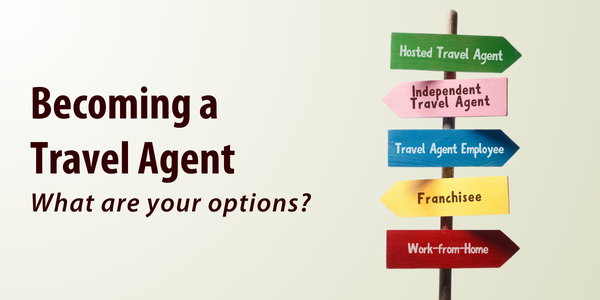How to Become a Travel Agent? Becoming a travel agent is an exciting career path for those who love travel and enjoy helping others plan their adventures. Here is a step-by-step guide to becoming a travel agent, including the necessary skills, education, and steps to get started.
Step 1: Understand the Role of a Travel Agent
Job Description:
Travel agents assist clients in planning and booking travel arrangements, including flights, hotels, cruises, car rentals, and vacation packages. They provide advice on destinations, itineraries, and travel insurance, ensuring a smooth and enjoyable travel experience.
Key Skills:
- Excellent communication and customer service skills
- Attention to detail
- Organizational skills
- Sales and marketing skills
- Knowledge of travel destinations and trends
Step 2: Obtain Relevant Education and Training
High School Diploma:
A high school diploma or equivalent is the minimum educational requirement to become a travel agent.
Travel and Tourism Courses:
Consider enrolling in travel and tourism courses offered by community colleges, vocational schools, or online platforms. These courses cover essential topics such as geography, travel regulations, and reservation systems.
Certification Programs:
While not always required, obtaining certification can enhance your credibility and job prospects. Notable certifications include:
- Certified Travel Associate (CTA)
- Certified Travel Counselor (CTC)
- Certified Travel Industry Executive (CTIE)
Step 3: Gain Relevant Experience
Work in the Travel Industry:
Gain experience by working in related fields such as customer service, hospitality, or tourism. This experience can help you develop essential skills and industry knowledge.
Internships:
Consider internships with travel agencies or tour operators. Internships provide hands-on experience and networking opportunities within the industry.
Step 4: Develop Technical Skills
Travel Booking Systems:
Familiarize yourself with travel booking systems such as Sabre, Amadeus, and Galileo. These systems are commonly used in the industry to book flights, hotels, and other travel arrangements.
Online Research:
Develop strong online research skills to find the best travel deals and information for your clients.
Step 5: Build a Network
Join Professional Organizations:
Joining professional organizations such as the American Society of Travel Advisors (ASTA) or the International Air Transport Association (IATA) can provide valuable networking opportunities, resources, and industry updates.
Attend Industry Events:
Attend travel industry events, trade shows, and conferences to meet potential clients, suppliers, and other travel professionals.
Step 6: Consider Starting Your Own Travel Agency
Business Plan:
If you’re considering starting your own travel agency, create a detailed business plan outlining your target market, services, pricing, and marketing strategies.
Licensing and Legal Requirements:
Research the legal requirements for starting a travel agency in your area. This may include obtaining a business license, registering your business name, and purchasing liability insurance.
Marketing Your Services:
Develop a strong online presence through a professional website and social media. Utilize online marketing strategies such as SEO, content marketing, and email marketing to attract clients.
Step 7: Stay Updated on Industry Trends
Continuing Education:
Stay informed about the latest travel trends, technologies, and regulations by taking continuing education courses and attending industry workshops.
Travel Experience:
Travel as much as possible to gain firsthand knowledge of destinations and travel experiences. This will help you provide better recommendations and insights to your clients.
Conclusion
Becoming a travel agent involves a combination of education, experience, and a passion for travel. By following these steps, you can build a successful career in the travel industry, helping clients create unforgettable travel experiences. For more career tips and industry insights, visit Netwymanblogs your go-to source for the latest news and updates in various fields.
FAQs: How to Become a Travel Agent
1. What qualifications do I need to become a travel agent?
You need a high school diploma or equivalent. Taking travel and tourism courses and obtaining certifications like CTA or CTC can be beneficial.
2. Do I need a college degree to become a travel agent?
No, a college degree is not required. However, a degree in hospitality, tourism, or business can be helpful.
3. How long does it take to become a travel agent?
It can take a few months to a year if you pursue certifications and relevant courses. Gaining experience through internships or entry-level jobs may add additional time.
4. What are the main responsibilities of a travel agent?
Travel agents plan and book travel arrangements, provide advice on destinations, ensure clients have necessary travel documents, and offer customer support.
5. Is it necessary to have travel experience to become a travel agent?
Travel experience is not mandatory but can be very helpful in providing valuable insights and recommendations to clients.
6. What skills are essential for a travel agent?
Key skills include good communication and customer service, strong organizational skills, attention to detail, sales and marketing abilities, and proficiency with travel booking systems.
7. Can I work as a travel agent from home?
Yes, many travel agents work from home either as independent contractors or through host agencies, offering flexibility and control over their schedules.
8. How do travel agents make money?
Travel agents earn money through commissions from suppliers (hotels, airlines, cruise lines), service fees charged to clients, and by selling travel insurance or other add-on services.
9. Are there any online resources for aspiring travel agents?
Yes, resources include online courses in travel and tourism, professional organizations like ASTA, webinars, blogs, and forums for travel professionals.
10. How can I stay updated on travel industry trends?
Join professional organizations, attend industry events, subscribe to travel industry newsletters, take continuing education courses, and network with other travel professionals.

